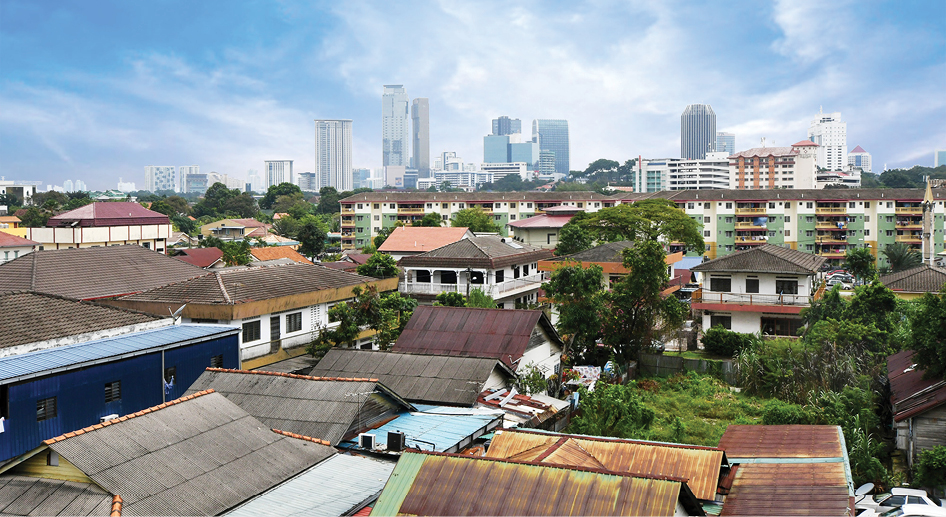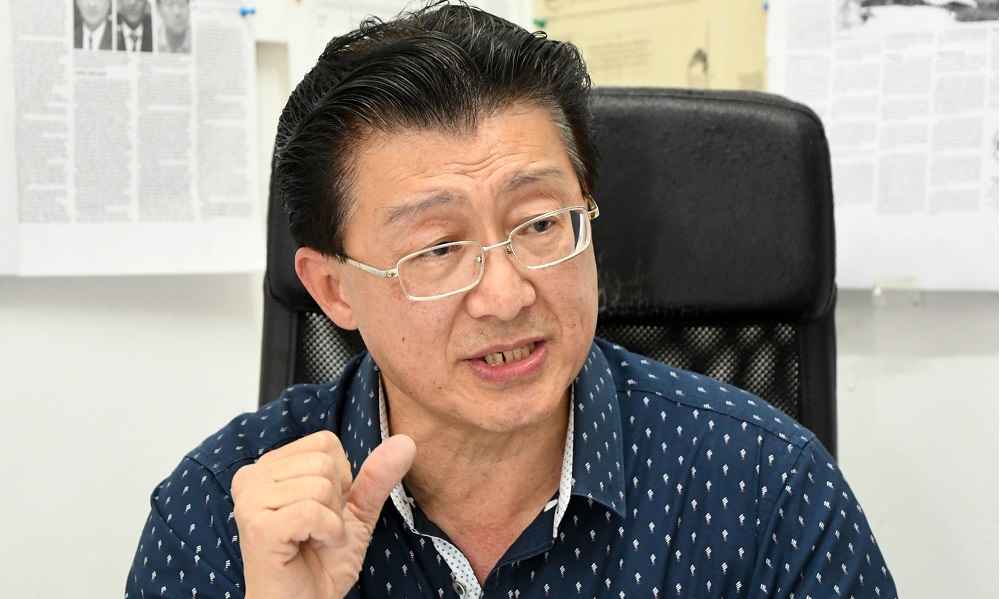
The land laws of Peninsular Malaysia are governed by the National Land Code, 1965 (Act 56 of 1965) (NLC) and has been in force since Jan 1, 1966. Section 40 of the NLC states that all state land belongs to the state authority.
When state land is disposed of by the state authority to an individual in perpetuity for an indefinite period, this land is then granted a freehold title. When it is disposed of for a term of years, by virtue of law, not exceeding 99 years, this land is then granted a leasehold title. Upon expiry of the period of the lease, the land should be reverted to the state authority.
The owner will then have to either apply for a renewal of the lease before its expiry or apply for a fresh alienation if the lease has expired. These will involve the payment of a premium which would be close to buying the land all over again or perhaps — with political intervention — at nominal fees, as in the case of PJ Old Town Section 1 leasehold parcels that had expired but were renewed for a new tenure of 99 years at a premium fee of RM1,000 with certain reasonable conditions attached.
HBA vehemently objects to the proposed new Chapter
The idea of a scheme that would allow private corporations to “lease out” freehold land that they own for housing developments via the Private Lease Scheme (PLS) was first mooted in 2012 by Iskandar Investment Bhd, a strategic developer of Medini, Johor, as reported in the news media. At that material time, there was no such laws regulating PLS.
It was on Oct 21, 2018 the Director-general of Department of Lands & Mines, Putrajaya (JKPTG), intended to introduce a new chapter titled: PLS/“Sijil Pajakan Persendirian” to our NLC. PLS was purported to facilitate inter-alia:
“The purpose of introducing the PLS in our legislations is to allow the freehold land owner (lessor) an opportunity to develop land which they otherwise wouldn’t or couldn’t have developed; without parting with the ownership of the land.
This is of particular benefit to private landowners who need to retain ownership of their land and make it available for development, without being actively involved in the maintenance of the building.”
The National House Buyers Association (HBA) does not support the introduction of a new Chapter to the NLC or to the Strata Titles Act on PLS concept as it offers “no proprietary rights” for the buyers. The current NLC does not allow for “leases” to be created for more than one person — the PLS will counter this provision.
The PLS will also result in land ownership in perpetuity as private landowners will now have a monopoly on merely leasing or renting out their land where condominiums or apartments, or even landed houses are built, and they will have the absolute right after 66 or 99 years not to renew the lease. Consequently, property owners (inclusive of strata property owners) under PLS will be renters in perpetuity. PLS will also contribute towards an increase in house prices which is against Dasar Perumahan Negara 2.0 to ensure affordability to Malaysians — and not merely profits for housing developers and ability to own houses by foreigners.
There are some adverse effects the proposed PLS could bring. Firstly, it could potentially create a generation of homeless people. With leases expiring after the maximum 66 or 99 years with no expectation for extension with a reasonable fee, house owners will live at the whim and fancy of developers/land proprietors. Unlike the Government, the private developers/proprietors are not accountable and would not have any moral obligations to the people.
PLS could also be confusing to the public as they could have difficulties distinguishing between leasehold and private lease. Most are unaware of the differences. We also have to bear in mind the value as collateral in comparison with leasehold/freehold lands. PLC will prevent wealth from being passed from one generation to another. Housing developers in joint ventures with land proprietors — being lessees — are incapable of passing any ownership (legal or beneficial as recognised under the NLC and Strata Titles Act) in the land itself to purchasers who are deemed sub-lessees.
Why the need for PLS?
The introduction of the PLS appears to be motivated by the effort to prevent foreigners from possessing too much land in the state of Johor. However, if the PLS concept is introduced in the NLC, it would then apply throughout Peninsular Malaysia and universally to the public regardless of citizenship status.
According to research, if the PLS becomes a trend, it will reduce the supply of property ownership in the market and thereafter push up the already unaffordable house prices even further. Then there will be a mad rush by rich barons to buy up land of freehold status.
The entire property landscape will be changed forever from “sale of property with titled ownership” to a long-term rental or lease of property for a tenure. Freehold land will then become the most sought-after commodity.
Scarcity of land in Hong Kong and Singapore
Although land leasing with relatively short lease periods is popular in jurisdictions facing shortage of land such as Hong Kong and Singapore, Malaysia has abundant land. The Government should not peddle to the needs of Medini and those in Johor Bahru and must consider the overall ramification across our country. PLS will create lots of confusion to the Commissioner of Building, banks and property market.
Since “lease” has no sense of ownership and security, house buyers will continue to be hoodwinked into buying leases. We have to bear in mind that the value of leases will diminish with each expiring lease tenure. PLS property depreciates and becomes worthless in the long run. The house buyers lose everything and become homeless after struggling to pay off full market price with interest and risk.
If the common properties and facilities are not maintained in serviceable conditions, market prices will drop exponentially after the 60th year and become zero at the end of the 99 years lease whilst land proprietors gain everything with enhanced land value without doing anything. Examples of properties that are affected are those that are currently up for resale, public auction and refinancing.
Disadvantage to future generations
This PLS issue may open up a new can of worms as owners of freehold land will now hold on to their ownership forever for the benefit of their future generations, like the feudal system of land ownership under the colonial days where land plots are granted by lease and licence to cultivate.
Should we not be moving away from our colonised days? If this issue of PLS is made a reality, cash-rich land barons and property developers will quickly snap up all freehold land and adopt the same “modus operandi” whereupon prices will escalate and house buyers will continue to remain as tenants in perpetuity rather than homeowners.
Innocent buyers will not know the repercussions. There is no ownership security anymore for our next generation of buyers. Our current generation cannot allow the creation of a monster that will affect our children and our children’s children.
HBA’s disagreement on the PLS inclusion to the NLC were amongst the few recommendations that were discussed with the Council of Eminent Persons on May 17, 2018 at the briefing with former Finance Minister Tun Daim Zainuddin, former Bank Negara governor, Tan Sri Zeti Akhtar Aziz; former Petronas CEO, Tan Sri Hassan Merican; and representatives of moguls Tan Sri Robert Kwok and Tan Sri Oh Siew Nam.
Possibility of the way forward
Unfortunately, the die has been cast for certain developments in Johor which had used PLS though the laws were not in place. To minimise the damages done, there should be special legislations for certain gazetted international economic zones like Medini, with proper safeguards for the buyers with its land ownership restrictions. It cannot be allowed to be applied nationwide as it would “open the floodgates of rampage”.
This week’s “Ramifications of leasing out freehold land under Private Lease Scheme”is part one of an article by HBA. Part two will be published on Nov 6, 2020.
Datuk Chang Kim Loong is the Hon. Secretary-General of the National House Buyers Association (HBA).
HBA can be contacted at: Email: [email protected]
Website: www.hba.org.my
Tel: +6012 334 5676
This story first appeared in the EdgeProp.my e-Pub on Oct 30, 2020. You can access back issues here.
Get the latest news @ www.EdgeProp.my






